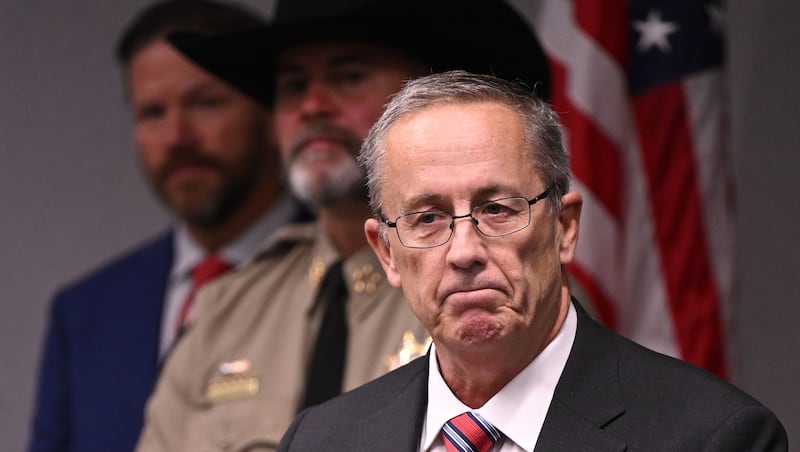Prosecutors say they will seek the death penalty in the case against the man accused of killing conservative political activist Charlie Kirk.
Utah County Attorney Jeff Gray called the murder of Kirk “an American tragedy” Tuesday in a press conference announcing aggravated murder and other charges against 22-year-old Tyler James Robinson.
In Utah, aggravated murder is the only crime subject to the death penalty. The law contains a list of circumstances under which prosecutors could charge a person with that offense including, “the murderer knowingly created a great risk of death to a person other than the victim and the murderer.”
The aggravated murder charge against Robinson reads he “intentionally or knowingly caused the death of Charlie Kirk under the following circumstance: The defendant knowingly created a great risk of death to another individual other than Charlie Kirk and the defendant,” according to court documents.
Charlie Kirk hands out hats before he was shot during Turning Point USA’s visit to Utah Valley University in Orem on Wednesday, Sept. 10, 2025. | Tess Crowley, Deseret News
Robinson allegedly fatally shot Kirk with a high-powered rifle from a rooftop as he spoke at an outdoor event at Utah Valley University last Wednesday.
Gray filed a notice of intent to seek the death penalty Tuesday after Robinson made his first court appearance.
“I do not take this decision lightly and it is a decision I have made independently as county attorney based solely on the available evidence and circumstances and nature of the crime,” he said.
Gray said he was not pressured by either the Trump administration or Utah Gov. Spencer Cox’s office to seek the death penalty.
Utah capital punishment law

Tyler Robinson, 22, the suspect in the shooting death of Charlie Kirk, appears by camera before Judge Tony Graf in Utah’s 4th District Court on Tuesday, Sept. 16, 2025, for his initial appearance in Provo, Utah. | Scott G Winterton, Deseret News
Lethal injection is the primary method of execution in Utah but firing squad is an alternative method. Executions are carried out at the Utah State Correctional Facility in Salt Lake City.
In 2004, Utah removed the right of the condemned to choose the method of execution and left lethal injection as the only option. But in 2015, the state restored the firing squad as a legal means of execution if it’s unable to obtain the necessary lethal injection drugs within 30 days of a scheduled execution.
Because the law was not retroactive, death-row inmates who chose the firing squad before February 2004 are still to be executed in that manner.
In 2022, two Republican state lawmakers sought to abolish the death penalty in Utah, but the bill failed to advance out of a House committee.
Utah prosecutors are pursuing the death penalty less frequently. There are only two active capital cases in the state, both involving men accused of killing police officers.
Executions in Utah
Convicted killer Ralph Menzies, who has dementia, was scheduled to die by firing squad on Sept. 5. But the Utah Supreme Court vacated his death warrant, ruling that the district court erred by not allowing him a new competency hearing.
Utah was the first state to execute someone after the United States reinstated capital punishment in 1976. A firing squad shot convicted killer Gary Gilmore on Jan. 17, 1977 at the Utah State Prison.
Since then, the state has executed seven men; the last one was Taberon Honie on Aug. 8, 2024. There are currently four men on death row in the state. The average length of stay on death row is about 34 years.
Utah is one of only three states to have ever carried out executions by firing squad and one of only two to do so after the moratorium on capital punishment ended, the other being South Carolina.









